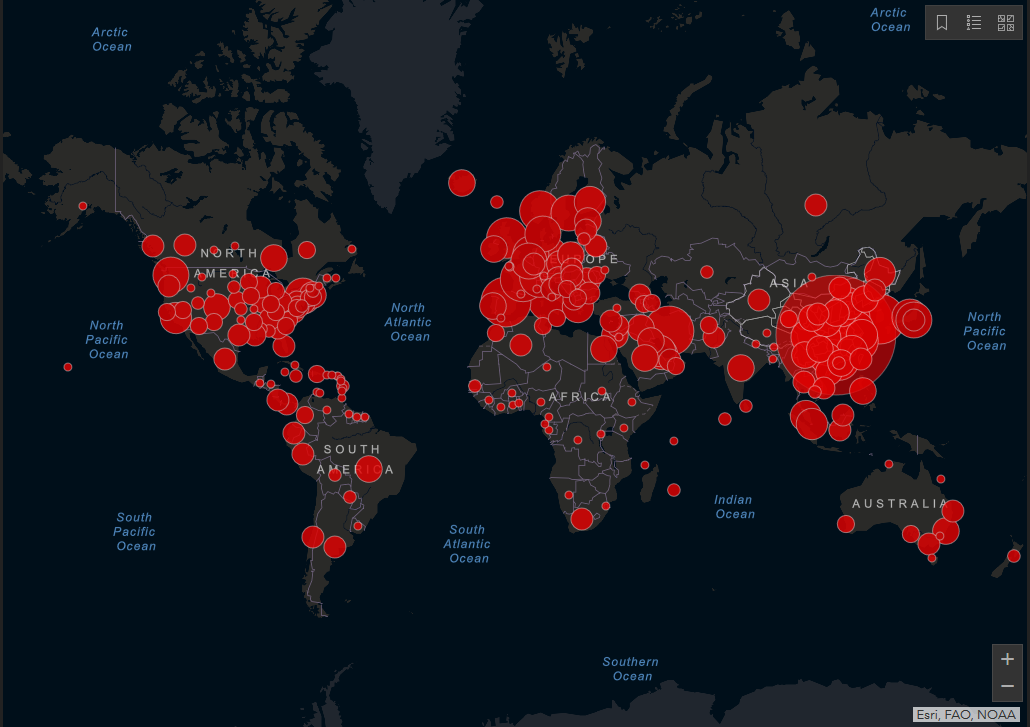> – Qaddafi’s Ukrainian “Nurse” (KGB Controller?) Flies Home on Military Transport, Ukrainian Security Service (SBU/KGB) Confiscates Kolotnitskaya’s Passport after In-Flight Rant (source)
– Qaddafi’s Ukrainian “Nurse” (KGB Controller?) Flies Home on Military Transport, Ukrainian Security Service (SBU/KGB) Confiscates Kolotnitskaya’s Passport after In-Flight Rant (source)
– US Navy Warships Heading for Libyan Coast as Rebels Mull Benefits of Foreign Intervention
– Western Sahara Guerrillas Steal across Algerian-Libyan Border to Military Camps near Tripoli, Lead Ground Operations for Strongman’s Mercenary Army
– Qaddafi’s Children Urge Dictator to Accept Offer of Political Asylum from Nicaragua’s President Ortega
– Al Qaeda Affiliates Express Solidarity with Popular Uprising, Islamic Militants Raid Army Depot with Complicity of Commanding Officer
In the wake of a popular uprising that is less than three weeks old, the Great Socialist People’s Libyan Arab Jamahiriya, founded by Colonel Muammar al-Qaddafi in 1969, is in its death throes. Rebel forces consisting of anti-government troops and militias pretty much control the entire North African country, with the exception of the capital Tripoli, Qaddafi’s hometown Surt, and a few other population centers.
Undaunted, Qaddafi loyalists have staged counterattacks since last weekend. On Wednesday, they overran the lightly defended town of Brega, an oil-exporting terminal on the coast around 500 miles east of Tripoli. However, rebels managed to repel the pro-Qaddafi forces (pictured above). Local sources described an aerial attack against the town of Ajdabiyah, around 50 miles from Brega, where rebels have seized control of a large ammunition dump. Ajdabiyah lies on the western approaches to Benghazi, the site of a rival government headed by Libya’s former justice minister.
Libya’s anti-Qaddafi rebels are divided over the issue of summoning foreign military intervention. “We are probably going to call for foreign help, probably air strikes at strategic locations that will put the nail in his [Qaddafi’s] coffin,” Mustafa Gheriani, a spokesman for the hastily organized February 17th Coalition, told Reuters. “They [loyalists] tried to take Brega this morning, but they failed. It is back in the hands of the revolutionaries. He [Qaddafi] is trying to create all kinds of psychological warfare to keep these cities on edge.”
In Tripoli, cornered mad dog Qaddafi, some or all of his seven sons, including heir apparent Saif al-Islam, are holed up in a huge military complex with thousands of mercenaries from Ukraine and Serbia, as well as Zimbabwe, Mali, Chad, and Sudan. The Bab al-Azizia barracks contain tunnels for easy escape and, according to Ramdan Jarbou, a writer who advises the rebel council, “It is designed to resist an atomic attack.”
Qaddafi’s white mercenaries from Eastern Europe have been tasked with keeping the Libyan air force airborne, while the black hired guns from sub-Saharan Africa roam the streets of Tripoli, looking for victims. Tellingly, the governments of Ukraine, Belarus, and Serbia were quick to deny the involvement of any retired or active-duty soldiers in the Libyan civil war.
Reportedly leading the pro-regime ground operations are guerrilla fighters of the Popular Front for the Liberation of Saguia el-Hamra and Río de Oro (Polisario Front). In past years, Qaddafi cultivated a useful alliance with Polisario Front leader Mohamed Abdelaziz, who is also chummy with Cuba’s communist leaders. A Moroccan news site relates that the “Good Colonel” has dispatched emissaries to Western Sahara with a request for “additional fighters” in exchange for money and weapons to prosecute the Polisario Front’s war against Morocco:
Some sources in Algeria speak of hundreds of fighters from the Western Sahara. Separatist Polisario group have already crossed the border between Algeria and Libya towards military camps near Tripoli, Libya. The goal is to use Gaddafi’s Serbs and Ukrainians to fly helicopters and military aircraft, while the Polisario fighters lead the ground fighting.
Moreover, and according to the official Libyan news agency JANA, the Western Sahara Polisario leader, Mohamed Abdelaziz, has been one of the few people who managed to talk to Qaddafi. During the call, the “guide of the revolution” [Qaddafi] had promised to Mohamed Abdelaziz considerable sums of money and weapons to resume the war against Morocco. In his speech Tuesday, Gaddafi had indeed made it clear that nations that would help him are all from the Sahara. A clear allusion to the Polisario.
For his part, Muammar’s son Khamis leads the Libyan army’s 32nd Brigade, a relatively well equipped special forces outfit consisting of 10,000 men who have pledged their loyalty to the Qaddafi clan.
Since his coup against the Libyan monarch, Qaddafi has enjoyed Moscow’s ideological and technological support, both before and after the “fall” of communism. Russian Prime Minister Vladimir Putin visited Libya in early 2008, while Qaddafi returned the favor by stopping by at the Kremlin later that year. An arms deal was high on the agenda in both instances.
Despite the current violence in Libya, the Russian Foreign Ministry has rejected international calls for sanctions against Qaddafi’s tottering regime. “While [they] might work in some situations, you can hardly say that they are an effective method of international action,” ministry spokesman Alexander Lukashevich told Interfax. During bilateral talks in Brussels, Foreign Minister Sergei Lavrov released a joint statement with European Union Foreign Policy Chief Catherine Ashton, which stated:
We condemn and consider unacceptable the use of military force to break up peaceful demonstrations. Supporting the peoples of Arab countries in their aspirations for a more just and prosperous life, the European Union and Russia stand ready to provide economic and other assistance to interested countries at their request.
The Kremlin has also rejected calls for military strikes and the establishment of a “no-fly” zone over Libya. Lavrov commented dismissively: “Planning any military intervention would be superfluous. Russia will veto any such plans at the United Nations.” Along the same theme, Russia’s NATO ambassador Dmitry Rogozin rumbled: “It would be a serious mistake if someone in Washington is seeking a blitzkrieg in Libya. A ban on the national air force or civil aviation to fly over their own territory is still a serious interference into the domestic affairs of another country.” Saif al-Islam warned against military action. “If they attack us, we are ready,” he told Sky News.
Since the uprising started on February 16, the former Soviet republic of Belarus’ support for Qaddafi has been more tangible than the expressions of solidarity emanating from Russia. On the previous day, reports the Stockholm International Peace Research Institute (SIPRI), a Libyan-owned Ilyushin Il-76 aircraft left an air base near the Belarusian city of Baranovichi and landed at the Libyan desert airport of Sebha. “The Ilyushin came from a dedicated military base that only handles stockpiled weaponry and military equipment,” revealed SIPRI’s arms trafficking expert Hugh Griffiths on Radio Sweden. SIPRI is an independent organization that tracks arms trafficking on behalf of the European Union.
The arms monitor also contends that one of Qaddafi’s private aircraft, a Falcon 900 executive jet, flew from Libya to Belarus last week, at least twice, possibly ferrying gold and diamonds. In particular, Griffiths elaborated on Sebha’s importance to the Libyan regime’s military operations:
Sebha is deep in the desert and was created by Gaddafi as his main military logistics base for his invasions of Chad in the 1980s. The tribe that controls the area around Sebha is still loyal to Gaddafi, he spent some of his formative years there, going to school.
Sebha could still be used as a jumping-off point for the movement of people or high-value commodities – such as diamonds, gold – out of Libya, either by executive jet, such as the aircraft which made the flights to Belarus late last week, or heavier items by cargo aircraft.
The Libyan regime has a “substantial number” of Soviet-built Ilyushin Il-76s. The air base at Baranovichi holds a major supply of arms and light weapons left over from the Cold War. Khamis al-Qaddafi attended a large military exercise in Belarus two years ago.
Griffiths also suggests that personal links between Qaddafi and four-term Belarusian president Alexander Lukashenko could be helpful for the Libyan leader and his clan in the event that rebels successfully seize Tripoli. “[Lukashenko] hasn’t distanced himself from Gaddafi and he would certainly welcome members of his entourage,” he was quoted by Radio Sweden as saying. “Belarusian authorities could also manage to convert [Qaddafi’s alleged] large quantities of gold and diamonds into cash.” Although we previously quoted a Libyan oppositionist as predicting that Qaddafi intended to escape to Zimbabwe, Lukashenko would no doubt welcome the Lunatic of Libya with open arms.
As with reports of Belarusian and other Eastern European soldiers in the employ of Qaddafi, Belarus authorities derided the SIPRI report. Information about the flights between Libya and Belarus were drawn from “a wide range of sources” within the United Nations, EU and NATO, Griffiths told Swedish radio news.
On Tuesday the United Nations General Assembly unanimously suspended Libya’s farcical membership in the UN Human Rights Council. The resolution was adopted by consensus in the 192-nation General Assembly on the basis of a recommendation from the 47-member Geneva-based council, the principal UN rights forum. That body accused Libyan authorities last Friday of “gross and systematic violations of human rights.”
In spite of its pro-Muslim stance, the Obama White House is at least toying with a military response to the Qaddafi regime’s brutal crackdown on the rebellion. Secretary of State Hillary Clinton told the House of Representatives’ foreign affairs committee that Libya’s future is “murky.” Clinton opined: “In the years ahead, Libya could become a peaceful democracy or it could face protracted civil war. The stakes are high. The entire region is changing, and a strong and strategic American response will be essential.”
Defense Secretary Robert Gates cautioned: “We have to think about the use of the U.S. military in another country in the Middle East.” Joint Chiefs Chairman Admiral Mike Mullen mused: “It would be an extraordinarily complex operation to set up.”
If US President Barack Hussein Obama gives a green light to oust Qaddafi, then the White House may play the “weapons of mass destruction” card to justify US-NATO air strikes. An Israeli news source quotes The Wall Street Journal as saying that “Washington fears Gaddafi may use mustard gas and other chemical-weapons agents against anti-government protestors. The newspaper quoted US officials as saying Tripoli also maintains control of aging Scud B missiles, as well as 1,000 metric tons of uranium yellowcake and vast amounts of conventional weapons.” According to an unconfirmed report in the Iranian state media, the Qaddafi regime has already used poison gas against rebels in the city of Misurata.
On March 2, Reuters, citing Egyptian authorities, reported that two US Navy amphibious assault ships, Kearsarge and Ponce, entered the Suez Canal from the Red Sea, sailing north on their way to the Mediterranean Sea. On Monday, destroyer USS Barry passed through the canal and is now sailing in the southwest Mediterranean. Pentagon officials will not confirm whether the aircraft carrier USS Enterprise, which is still in the Red Sea, will be deployed to Libya.
Meanwhile, according to the Jerusalem Post, Qaddafi’s children have urged their father to abdicate and head for Nicaragua, where President Daniel Ortega, with the White House’s blessing, has reportedly offered political asylum to his old Cold War comrade. Ortega has been very vocal about his support for Qaddafi and disapproval for the Libyan rebels, earning him a rap on the wrist from Costa Rican counterpart Laura Chinchilla, with whom he is duelling over a disputed river border.
Incidentally, President Hugo Chavez, Qaddafi’s ally in Venezuela, has made no public statements concerning the Libyan uprising. This conspicuous silence is strange in view of Comrade Hugo’s reputation as a “big mouth.” However, PetroleumWorld reports that Chavez may have let the cat out of the bag in a post at his official Twitter account: “Gaddafi is facing a civil war. Long live Libya. Long live the independence of Libya.”
Like Communist Cuba, the red regime in Caracas alleges that the USA plans to invade oil-rich Libya under the guise of intervention. Venezuela’s UN ambassador Jorge Valero stated: “We urge peace-loving nations in all regions of the world to put a stop to the invasion plans against Libya, which have been unashamedly announced by the Department of State of the United States and the Pentagon.”
Throughout the rebellion, Qaddafi–who hides his own hashish addiction behind trademark sunglasses–has accused Al Qaeda of fomenting the unrest that imperils his regime with drug-crazed teenagers as pawns. Although Islamists have yet to hijack the ongoing democratic revolutions in Tunisia, Egypt, and Libya, they are definitely making their presence felt in the last country, where the regime’s response to public protests has been the most violent.
In a statement released on February 24 by the North African affiliate of Al Qaeda, the group known as Al Qaeda in the Islamic Maghreb (AQIM) declared its solidarity with the Libyan rebels: “We declare our support for the legitimate demands of the Libyan revolution. We assert to our people in Libya that we are with you and will not let you down, God willing. We will give everything we have to support you, with God’s grace.” The statement was posted on the al Qaeda-affiliated al-Fajr website.
Frances Townsend, formerly homeland security adviser to US President George W. Bush, worries that AQIM could establish a presence in the eastern provinces of Libya: “I do worry because AQIM has training, recruiting and operational capability, and they could lend that capability to what remains of the Libyan Islamic Fighting Group.” Formed by Libyan fighters who joined Osama bin Laden in the 1980s to oust the Soviets from Afghanistan, the Libyan Islamic Fighting Group (LIFG) was until recently the jihadist opposition to Qaddafi.
“Gadhafi crushed them,” relates Townsend. “My concern has always been that AQIM could conceivably lend support to the remnants of the LIFG as an attempt to take advantage of the chaos. It’s a legitimate concern, but as far as I know, it’s for now a theoretical concern.” Many of the LIFG leaders were sent to prison and then reintegrated into society through de-radicalization programs.
Another Muslim grouping called the Libyan Islamic Movement for Change has issued a statement calling on Arab states and the international community to intervene and aid the Libyan protestors:
This regime has lost control of most Libyan cities with the exception of the main part of the capital Tripoli…which has forced this gang to carry out airstrikes – using foreign pilots – against locations where protestors are gathering. This is in order to guarantee freedom of movement to military brigades and foreign mercenaries that have been brought in from abroad to carry out a campaign of genocide against the Libyan people, away from the eyes of the outside world.
Gaddafi is committed to destroying Libya and its people, and he wants to ensure that if his end is inevitable, he will not fall alone, but take all of Libya with him.
The Libyan Islamic Movement for Change urged the Libyan Air Force to bomb Qaddafi’s headquarters at the Bab al-Azizia barracks in Tripoli, “thereby spare Libyan people the bloodbath being arranged by the Libyan leaders, enabling the people of Libya to regain their independence and freedom.”
On February 20, a third Islamist group, called the Islamic Emirate of Barqa (IEB), actually carried out a military operation in Derna, storming a government arms depot and a nearby port. In the coordinated assault, IEB militants killed four soldiers, took hostages, and seized 250 weapons and 70 army vehicles. Significantly, the depot’s commanding officer facilitated the theft by willingly turning over a rocket-propelled grenade launcher, three anti-aircraft artillery units, and 70 Kalashnikov assault rifles. The same group was responsible for the hanging of two policemen in Al-Baida on February 19.
Over the past five years, Libya has freed around 850 prisoners from different Islamist groups, 360 of them since March 2010. Among those released were jihadists with ties to Al Qaeda’s Iraqi and North African sections, including senior members of the LIFG, such as its chief Abdelhakim Belhaj. In March 2006 Libya released 84 jailed members of the country’s banned Muslim Brotherhood, held since the late 1990s.
 On Saturday, with a United Nations mandate in its hand and NATO allies at its side, the US Air Force
On Saturday, with a United Nations mandate in its hand and NATO allies at its side, the US Air Force 







 Pictured here: On Monday, anti-Qaddafi rebels run for cover after a Libyan air force fighter jet drops a bomb near a checkpoint on the outskirts of the oil town Ras Lanuf.
Pictured here: On Monday, anti-Qaddafi rebels run for cover after a Libyan air force fighter jet drops a bomb near a checkpoint on the outskirts of the oil town Ras Lanuf.



